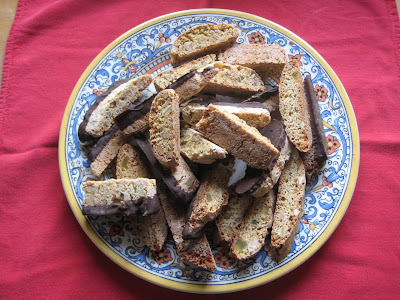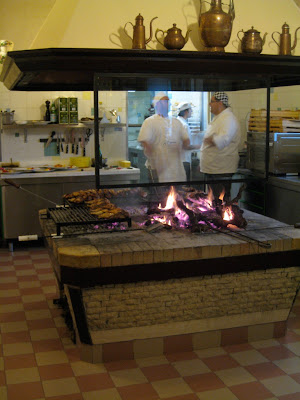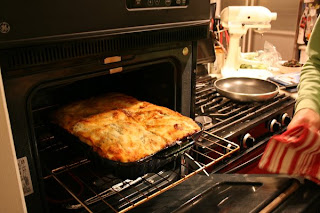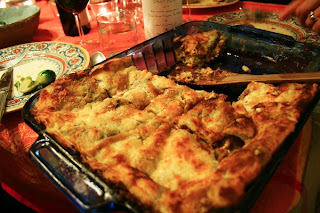
I went to the local supermarket for a couple of disparate things the other day. Ketchup, Plochman's natural stone ground mustard and candied fruit. I must mention that I rotate brands of Ketchup. I will buy Heinz even though after years of buying only Heinz I was pretty sick of it's predictability even if it is very good. Then one day I walked into the store and there was Hunt's, and I bought that. It was nice to have a change. The next time I needed Ketchup I bought DelMonte. I loved the change and also the idea of not being petrified in my ways. The problem is that big supermarket chains have changed their ways--more store brands and fewer national brands. Now in the ketchup department they will have only two or three brands, which means the house brand, Heinz and either Del Monte or Hunts but not both. Also everything that is not on sale is pretty expensive. The Plochman's mustard costs twice what it did just a few years ago. So I walked into the local national chain supermarket and was hit with the usual smell of rotting fish that has gone along with this supermarket under the last three mega supermarket chain owners and when I say that the Plochman's was $5.99 I thought who need this? And I went to another national chain which didn't have Plochman's at all, and when I asked what appeared to be the manager where I could find candied fruit, she had no idea what I was talking about. She looked very puzzled, and finally said "Dried fruit?" Then I went to the local supermarket chain where the rich people shop. It smelled like food rather than garbage and they had everything I wanted. The Plochman's was the same price as the place that stinks like fish. I learned a lesson.
I'm a little late with this but I give these biscotti to people for the holidays. And actually I always add the candied fruit, not the stuff with red and green, which is too garish, but the candied orange peel, citron and lemon peel.
Biscotti Monte d'Oro
4 ounces shelled, freshly toasted almonds
2 1/2 cups flour
2 cups granulated sugar
1/2 teaspoon salt
1/4 teaspoon baking soda
1/4 teaspoon baking powder
3 large eggs
1. Preheat oven to 350 degrees. Line two or three large steel cookie sheets with parchment paper. Don't use aluminum cookie sheets and don't use Pam or other cooking sprays for this
recipe they don't work.
2. Place the nuts on an ungreased cookie sheet and toast in a 350 degree oven, tossing once to
turn, until golden. Allow to cool and then chop half of them.
3. Mix together the flour, sugar, salt, baking powder and soda. Beat in the eggs and then the
nuts.
4. Knead the dough for about two minutes. If it is still sticky, knead in a little more flour.
5. Roll into logs an 1 inch or less in diameter. Cut into sections about 3/4 as long as your cookie
sheets.
6. Place two dough logs on each of the lined cookie sheets. Bake for 25 to 35 minutes, until the logs are lightly browned and the tops are firm when gently touched. Don't turn off the oven.
7. Roll the loves off the parchment and onto a cooling rack. Allow to cool for at least 10 minutes. Using a serrated knife and a gentle sawing motion, slice each one diagonally into cookies about 1/2-inch thick.
8. Arrange the slices on wire racks and return them to the oven. Bake for 12 to 15 minutes, until
the cookies are crisp and firm. Cool completely before storing in a tightly covered container.
9. These biscotti not only keep for several weeks, but their flavor improves and deepens over
time.
Variations on the basic recipe:
1. Substitute walnuts, pecans or pignoli in place of the almonds.
2. Add 1 tablespoon or more candied orange or lemon peel.
3. Add 1 tablespoon of anise seed.
4. Add 1/4 cup chopped candied citron, orange peel, or lemon peel.
5. Chocolate-dipped biscotti: When the biscotti are cool, melt a bar of chocolate in the top of a
double boiler. (I use a loaf pan placed in a pan with boiling water ) Dip one flat side of each cookie in the chocolate, then set it, chocolate side down, on aluminum foil. After two hours peel the cookies off the foil.















